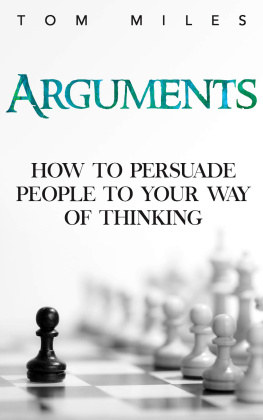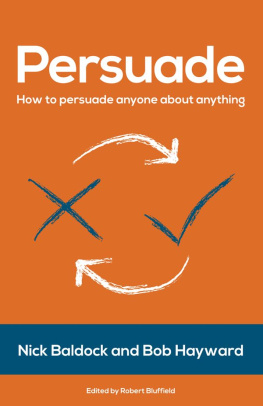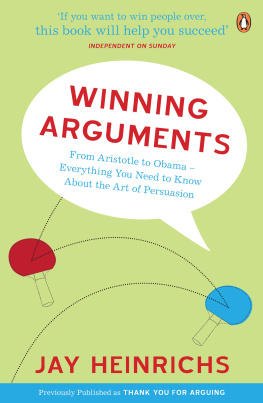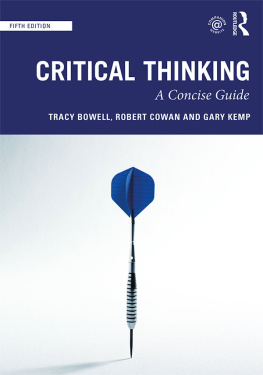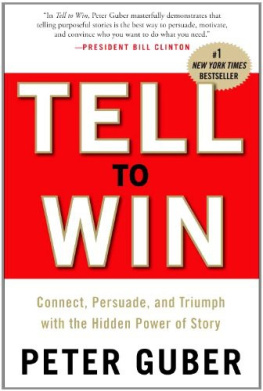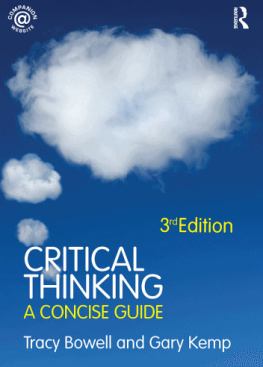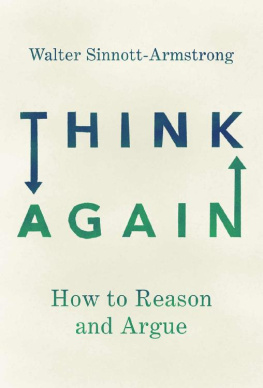Tom Miles - Arguments: How To Persuade Others To Your Way Of Thinking
Here you can read online Tom Miles - Arguments: How To Persuade Others To Your Way Of Thinking full text of the book (entire story) in english for free. Download pdf and epub, get meaning, cover and reviews about this ebook. year: 2015, genre: Religion. Description of the work, (preface) as well as reviews are available. Best literature library LitArk.com created for fans of good reading and offers a wide selection of genres:
Romance novel
Science fiction
Adventure
Detective
Science
History
Home and family
Prose
Art
Politics
Computer
Non-fiction
Religion
Business
Children
Humor
Choose a favorite category and find really read worthwhile books. Enjoy immersion in the world of imagination, feel the emotions of the characters or learn something new for yourself, make an fascinating discovery.
Arguments: How To Persuade Others To Your Way Of Thinking: summary, description and annotation
We offer to read an annotation, description, summary or preface (depends on what the author of the book "Arguments: How To Persuade Others To Your Way Of Thinking" wrote himself). If you haven't found the necessary information about the book — write in the comments, we will try to find it.
Tom Miles: author's other books
Who wrote Arguments: How To Persuade Others To Your Way Of Thinking? Find out the surname, the name of the author of the book and a list of all author's works by series.
Arguments: How To Persuade Others To Your Way Of Thinking — read online for free the complete book (whole text) full work
Below is the text of the book, divided by pages. System saving the place of the last page read, allows you to conveniently read the book "Arguments: How To Persuade Others To Your Way Of Thinking" online for free, without having to search again every time where you left off. Put a bookmark, and you can go to the page where you finished reading at any time.
Font size:
Interval:
Bookmark:
Arguments
How To Persuade Others To Your Way Of Thinking
Tom Miles
Copyright 2015 by Tom Miles
All rights Reserved. No part of this book may be reproduced in any form without permission in writing from the author. Reviewers may quote brief passages in reviews.
Disclaimer
No part of this publication may be reproduced or transmitted in any form or by any means, mechanical or electronic, including photocopying or recording, or by any information storage and retrieval system, or transmitted by email without permission in writing from the publisher.
While all attempts have been made to verify the information provided in this publication, neither the author nor the publisher assumes any responsibility for errors, omissions or contrary interpretations of the subject matter herein.
This book is for entertainment purposes only. The views expressed are those of the author alone, and should not be taken as expert instruction or commands. The reader is responsible for his or her own actions.
Adherence to all applicable laws and regulations, including international, federal, state and local laws governing professional licensing, business practices, advertising and all other aspects of doing business in the US, Canada, UK or any other jurisdiction is the sole responsibility of the purchaser or reader.
Neither the author nor the publisher assumes any responsibility or liability whatsoever on the behalf of the purchaser or reader of these materials. Any perceived slight of any individual or organization is purely unintentional.
I was expecting to simply learn better ways to convince people I'm right. But, this book goes way deeper than that. The author reminds us that it's important to know why you are arguing in the first place. We're not just trying to win. We want to convince people of the truth.
- Sarah
Great book to start off about the technicalities of arguments. Covers the entire spectrum of arguments and how to win them.
-Sushant Kumar
This book explains every aspect of arguments along with the best strategies to argue fairly, ethically, and in a way to effectively explain to others your position.
- Randy
Table of Contents
Arguing has a bit of a bad rap in modern society, being seen as divisive and a source of conflict. When most people hear the word they think of heated rows where voices are raised, accusations and names are thrown back and forth like missiles, no satisfactory conclusion is reached and the parties arguing end up angry, hurt and further apart and more dogmatically entrenched in their positions than before. This reputation isn't deserved arguing is just another aspect of communication, one that allows for there to be an exchange of ideas and for issues to be resolved in order for things to move forward.
This book is going to teach you how to overcome the obstacles that stand between you and succeeding in convincing others to your way of thinking. It will take a look at what arguing actually is in order to gain a better understanding of how to do it well and efficiently, tackle the prickly issue of just how ethical it is to persuade someone and look at the different ways in which we fail in our arguments, both in winning and occasionally in even reaching a decent resolution without devolving into fighting. It will also take an extensive look at logic, particularly how it is applied to construct valid and compelling arguments, and finally closes with ten tips that will help you to win your arguments.
The section on logic takes up over half the book logic is the cornerstone of a convincing argument, after all. This isn't a stuffy textbook that will give you dense theory with no connection to real life, though: each entry is illustrated by examples personal and professional that you are likely to come across in real life. Along with the positive uses of logic, some ways in which the techniques shown can be used in a dishonest way that takes advantage of how the human brain works are also included. There is a brief discussion on the ethics of using these techniques, but ultimately the power is given to you, the reader. The assumption is that you will understand the consequences and know when to use them, and their inclusion is also to help you be able to identify when others use them and stop dishonesty in its tracks.
All human beings alive are unique, and a part of that is that we all have a unique point of view: not a single human being will have another person with whom they share 100% of their beliefs, experiences and convictions not even their soulmate, if that mythical paragon of romance dramas and rom-coms even exists. Most of the time, regular communication is enough to facilitate exchange of ideas and help others understand what is going on in our heads, why we do things a certain way or what course of action we need to take, but its inevitable that from time to time we will come across situations where our ideas and those of others are completely incompatible with each other.
These situations crop up everywhere from our personal relationships to professional interactions at the workplace and in random interactions with strangers. Sometimes, the differences are minor and not big enough a deal to raise a row over one party backs down and acquiesces to the other, or an easy compromise is agreed upon. A lot of the time, though, such a quick solution is impossible to come to. The only way to resolve the situation is through argument both sides making points that advance their side with the hope of convincing the other that they are right.
There can be quite a lot of reasons for regular compromise and simply doing things one persons way without too much of an issue to become impossible. An ideological gap is the most common one the two parties are heavily invested and convinced of their own point of view. This is a direct result of every persons uniqueness and individuality and really cant be avoided. While in many cases things are not usually clear-cut, there is also the possibility that one point of view may be genuinely, objectively wrong, which really does not stop the party that believes it from thinking it is right.
Its because of this that arguing and debate are necessary, and are in fact vital skills to learn for the smooth running of society.
So, whether arguing is healthy or not depends entirely on the motives you have when entering into it. If you and your opponent are hell-bent on winning and nothing else, then of course neither of you are going to listen to what the other has to say. You really wont care much for constructing your argument in a logical manner that actually has a chance of getting through to your opponent. Its up to you to take it upon yourself to enter every interaction with objectivity and reason on your side. Being calm and measured and not answering a raised voice, accusations and vitriol in kind will tend to rub off on your opponent. If they dont, then you should be able to recognize that the argument is not going to result in a positive conclusion anyway, so its sometimes better to just back away in a way that lets your opponent know that you are not conceding to their point.
The stages by which arguments devolve into fights that achieve nothing are going to be explored in much greater detail later in the book along with the common reasons that we fail to convince others to see things our way, and strategies and tips to arrest the slide.
The end goal of any argument is persuasion: one party coming over to the others way of thinking the obvious preference being that it is your opponent that comes to see things your way. The tips and techniques given in this book will give you a considerable edge in achieving this goal, and that will give you quite a bit of power in your interactions and relationships. But to quote Uncle Ben, with great power comes great responsibility, and it is a very valid question to ask whether wielding this influence is right and ethical.
Font size:
Interval:
Bookmark:
Similar books «Arguments: How To Persuade Others To Your Way Of Thinking»
Look at similar books to Arguments: How To Persuade Others To Your Way Of Thinking. We have selected literature similar in name and meaning in the hope of providing readers with more options to find new, interesting, not yet read works.
Discussion, reviews of the book Arguments: How To Persuade Others To Your Way Of Thinking and just readers' own opinions. Leave your comments, write what you think about the work, its meaning or the main characters. Specify what exactly you liked and what you didn't like, and why you think so.

